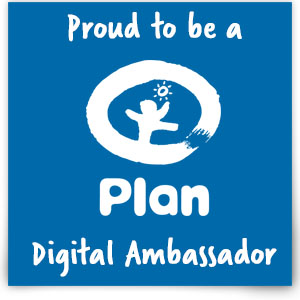9 Tech Trends for the Travel Industry
I recently attended a day of TEDx talks on technology, digital and innovation in East London, hosted by my employer, a large multinational company in the tech industry. There was understandably a business focus as well as a wider societal and consumer focus, and since starting to work in the field of digital strategy just two months ago, I’ve also begun looking at the travel industry in a new light. Yes, I am a consumer in the travel & tourism industry, just like anyone else in the world who’s ever taken a trip outside of their hometown. But I’m starting to see myself developing a deeper understanding of two specific fields, that have vast opportunities for collaboration and overlap: travel and tech.
My connection to Travel
Starting a blog about travel two years has unwittingly opened up a window for me into an industry that contributes around $6.5 trillion to the global economy per year. Not only do I now understand the PR and press side of travel from working on blogger campaigns with a number of different companies and agencies, but I also now take an interest in the business models and the trends that support this gigantic sector. Elizabeth Beckett’s fantastic book ‘Overbooked’ cemented my interest and I now follow travel industry news bulletins and dig deeper than I used to as a pure consumer of travel. The travel industry is a phenomenally large and fascinating web of interdependent organisations, from tourist boards to accommodation providers, from transport companies and online travel agents to insurers, from tourist-focused hospitality and attractions to the oft-forgotten but enormous business travel sector. The travel and tourism industry is also the world’s largest employer, with almost 600 million people employed worldwide.
My connection to Tech
Considering I had virtually no tech-related knowledge just two and a half years ago when I graduated from uni, working in a huge tech company for two years and immersing myself in the digital media world of blogging, website design and social media has taught me an enormous amount. Two years ago I had never even heard of Big Data, over-the-top communications, Digital Confidence, the entrepreneurial world of start-up incubators, wearables and the many other innovations in technology and the digital world. Goodness, I didn’t even know what a Digital Native was, let alone that I myself am one. My brain has soaked up a huge amount in these two years of working in tech, and yes some of it is very geeky and technical, and some of the detail can be boring. But grappling with the many trends in technology, in particular mobile technology, has opened my eyes to the zillions of possibilities surrounding the digital revolution we’re experiencing. It’s changing the way we live our lives and I think it’s an important field to understand.
So this brings me to the crux of this blog post: What are the various tech trends affecting the travel industry?
1. Complimentary smartphones in hotel rooms
Upon arriving in our hotel room in Hong Kong this May, my friend Imy and I discovered an ingenious idea that only a handful of hotels have adopted so far. There perched upon the mother-of-pearl covered desk was a docked smartphone. This smartphone was ours to use throughout our stay at the hotel and we took it everywhere with us, using its 3G connection as a Wifi Hotspot from which we tethered our own iPhones and used Google Maps, Tripadvisor and other apps to explore the city. Not only that, but the smartphone offered us free phone calls to 5 countries, including the UK. That is a seriously customer-focused hotel who offers their guests the one thing we need most while abroad in the modern age: a connection (aka lifeline) to the internet. Serious brownie points to the Cosmopolitan Hotel in Hong Kong. Read more about our trip to Hong Kong here.
2. Google Glass and wearables
I recently tested out the infamous Google Glass for an entire weekend and I foresee wearables such as Google Glass and Apple Watch becoming firm favourites with travellers. After two days of walking around looking like a character from Star Trek with the Google Glass on my face, I concluded that they’re not hugely useful in your hometown, but just perfect for exploring somewhere new, with apps for translating signs, taking virtual guided tours, finding directions, booking dinner reservations and taking photos and videos with the blink of an eye while exploring a new city. See my full review of Google Glass here.
3. Goodbye roaming fees!
Mobile roaming fees within the Europe Union have been falling steadily over the last few years and are set to be abolished altogether as early as 2015 (or thereabouts) by the European Parliament. This is great news for travellers and tourists, who will no longer face large phone bills abroad, which often add insult to injury while we’re trying to grapple with the post-holiday blues! Roaming fees for the rest of the world outside the EU are also falling gradually, but in the near future are set to remain high. But commercial pressures are working their magic and I do believe that at some point in the future roaming charges will be almost non-existent.
4. Portable pocket Wifi hotspots
A few savvy travellers have already discovered this ingenious way of keeping you and all your devices connected to the internet while you’re abroad. With one pocket-sized and portable wifi hotspot, with a local SIM card you top-up once, you can connect all your smartphones and tablets to it, and travel abroad with everything connected all at once. Simply leave it in your handbag or pocket and your personal hotspot of connectivity travels around with you wherever you go! Another way to do this (without the hassle of buying a local SIM card in each country) is to use TEP Wireless for £4.50 per day in Europe, and you can cross into as many countries as you like. This is a really good option for multi-country trips. I haven’t personally tried this company, but I’ve read good reviews.
5. Charge on-the-go, never again a dead battery
I recently borrowed a beautiful handbag from Aspinal of London during London Fashion Week, their Marylebone Tote, which comes with an integrated portable phone charger. If your smartphone is running low on battery while you’re out and about, then you can simply plug it in and it charges it up inside the bag. It also happens to be an absolutely gorgeous handbag! If the £895 price tag puts you off, then you can also buy portable phone chargers on their own for as little as £10-20. Nowadays we rely on our smartphones for absolutely everything and we are “always on”, except for the frustrating moment when our battery runs out. Now there’s a way to be truly always on.
6. Big Data will personalise and customise everything
Every company in the world is currently umming and ahhing over what to do with this big trend: Big Data. Big Data refers to how companies use the huge amounts of data they possess about their customers. One popular way that companies use Big Data is to customise and tailor their service to you, suggesting relevant products that fit your profile or the particular customer segmentation you fit into. This obviously saves you time and effort in the holiday booking process, but in the world of travel does it risk channelling you down a well-trodden path by confining you to a certain box? Will customisation by segmentation reduce the variety of options you’re exposed to, not allowing you to really explore everything the world has to offer? Your travel preferences might not exactly fit a specific customer segment, so how will the companies using Big Data incorporate that flexibility? Just be aware that every piece of information you fill into an online form, and every Google search you make, will affect the way travel destinations and products are customised and tailored for you. Sometimes good, sometimes bad.
7. Social-inspired travel
The likes of Facebook, Instagram, Twitter and Pinterest are changing the way we travel and influencing where we travel to, even if we’re unaware of it. Travel blogs such as mine also play their part in this. Marketeers have always known that Word-of-Mouth is hugely important. However the new Word-of-Mouth is the Facebook Check-in at that cool beach bar at sunset, or that Instagram photo of the airplane’s wing as it jets up to 30,000 feet, or that blog post I wrote recently about my trip to Istanbul. When you see somewhere incredible pop up on your Facebook News Feed, you might add it to your mental bucket list, and this drives the wanderlust that (1) prompts us to book holidays and trips; and (2) sometimes causes a whole lot of travel envy and dissatisfaction with the present. Picture the scene: you’re on your Monday morning commute, cursing the inventor of Mondays and the guy elbowing you in the packed train, when a photo of me scuba diving in sunny Malta pops up. That photo might inspire you to consider taking up scuba diving. On the other hand it might also dampen your mood even further by showing you what you could be doing if you weren’t commuting to work. (I can say this, because I frequently experience this exact feeling on my own dreary Monday morning commute!). Whether good or bad, the importance of social media in driving consumer behaviour when it comes to booking travel simply cannot be ignored and is a hugely important development in the last few years. On a related note, do follow me on Facebook here, on Instagram at @VStuartTaylor and on Twitter at @VStuartTaylor.
8. Guide Apps, not Guidebooks
Do you still read books in paperback? Or do you read on a Kindle or a tablet? Guidebooks still have their uses, but nowadays they’re more useful for inspiration than for practical information such as opening hours, ticket prices and contact details. Simply put, guidebooks go out-of-date as soon as they come off the printing press, and they are cumbersome to carry around. “Guide apps” such as Tripadvisor’s Offline City Guides or LUX Guides are downloadable via the App Store and have a lot more info. Tripadvisor’s app includes reviews, ratings and rankings and even shows your GPS position on its map in relation to the different hotels/restaurants/attractions/etc, even when you don’t have an internet connection. You can search for what’s nearby, by price range, by type of attraction, type of cuisine, etc. and I find it invaluable for travel. Infinitely more useful for city breaks than a paperback guidebook. I haven’t personally tried LUX Guides, but they cater for a more up-market customer with a refined style.
9. Strangely enough, JOMO
The latest fad in travel is JOMO, standing for the ‘Joy of Missing Out’, the cousin of FOMO, which stands for the ‘Fear of Missing Out’. Surrounded by so much technology and the pressure to be ‘always on’, there’s demand for holidays that actually relax you and where it’s physically impossible to connect to the internet and the outside world, restoring that sensation of escapism. Detox holidays have been confiscating smartphones for quite a few years already, and now it’s even evolved into a voluntary surrender of our gadgets. In August I spent 5 days in rural south-west France and chose to completely turn off my phone, and I even declined the offer of access to the internet through a laptop dongle. It was blissful to be so cut off! No barrage of emails, tweets and notifications. No pressure to post photos and statuses from our holiday. It would be hard to get away with this at home in England, as my friends, family and colleagues would soon tire of my unavailability. But travelling abroad for a set period of time gave me the perfect excuse! Read about my relaxing rural trip to south-west France here.
______________
If you’re clever, you’ll have spotted an underlying theme that ties together all of these 9 tech trends: they all involve smartphones or more broadly, ‘mobile’. Everyone knows that mobile devices like smartphones, tablets and more recently wearables have swiftly overtaken fixed computers (and even portable laptops) as our devices of choice, no matter where we are. We’ve become accustomed to accessing the internet for apps, info and social networks on-the-go at any time of day, and travellers are no exception. While many other aspects of the vast category of ‘tech’ are interesting to analyse and track, it’s mobile strategy that’s the key focus at the moment. It’s ‘mobile’ that I’m most interested in, and which is the fastest growing area for innovation.
But not all of these trends are necessarily positive. What’s happened to the escapism and disconnection that holidays used to entail (trend no.9)? What’s happened to the unknown and unexplored now that everything in the world is so thoroughly documented and photographed on the internet (trend no.8)? What’s happened to the variety that existed in the pre-personalisation & per-customisation era (trend no.6)? What’s happened to our ability to be happy in the moment, now that we are constantly overwhelmed with social media posts and and plagued with an ever-worsening case of wanderlust (trend no.7)?



















It’s really interesting to read about these tech trends in your post, especially the contrast between JOMO and social-inspired travel. I think we could all do with a tech-free break now and again, but it’s hard to have the willpower to go through with it when we’re all so reliant on using social media, constantly checking emails or spending time browsing online. However, I think a JOMO holiday will be on my wishlist for 2015 and I hope I can make it happen!
LikeLike
It’s unbelievably satisfying to properly switch off all internet access and ignore the digital world once in a while – enjoy your holiday!
LikeLike
Great post. I read the blog carefully and enjoy more.
LikeLike
This is a fantastic article.
I had not heard about some hotels providing their guests with smartphones. Such a smart and convenient idea! I will start looking out for this trend, for sure.
https://classiccosmopolite.wordpress.com/
LikeLike
Thanks Shannon, and yes you should out for the smartphones – they were so so helpful in Hong Kong.
LikeLike
Brilliant!!!!!
LikeLike
Is it cynical to think that perpetual connection to the virtual world is damaging our ability to connect to our present surroundings?
LikeLike
Not at all – very accurate in fact!
LikeLike